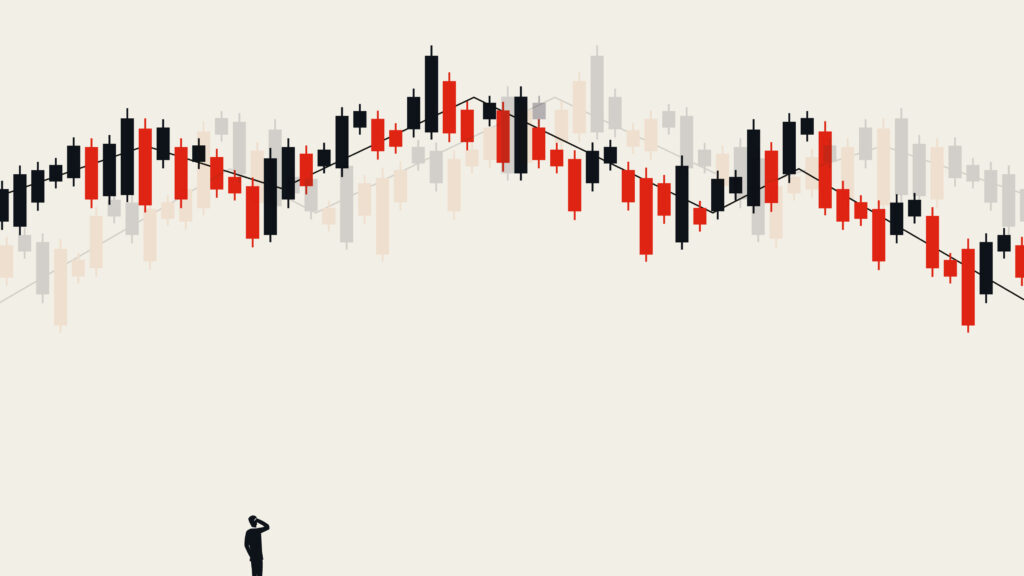Want to stay on top of the science and politics driving biotech today? Sign up to get our biotech newsletter in your inbox.
Good morning, all. Damian here with a look at biotech’s early-year volatility, the debut of a new venture fund, and the perils of accepting reality.
advertisement
The need-to-know this morning
- BridgeBio Pharma secured financing commitments of up to $1.25 billion, including the raise of $500 million in cash in exchange for 5% royalty payments on future sales of its heart medicine acoramidis.
Biotech’s hot start has already tailed off
A spate of deals at last week’s J.P. Morgan Healthcare Conference sent biotech stocks to heights not seen since 2022, but once the flow of billion-dollar agreements ceased, sentiment quickly came back to earth.
The XBI, a closely watched index of biotech stocks, has given back all of its JPM Week returns and is now down 2% for the year. Many of the conference’s biggest gainers — including the rumored takeout target Cytokinetics — have endured the heaviest losses.
It’s early yet, but biotech’s 2024 volatility suggests investors are a little more skittish than JPM’s rampant positivity would suggest. If the “takeout thesis” — valuing companies solely according to the odds someone else will want to buy them — is what drove the sector’s recent resurgence, the months ahead are likely to be rocky.
advertisement
No one wants to own up to a down round
The difficulty of raising venture capital has forced some biotech executives to accept an unpleasant reality: Their companies just aren’t worth what they were in better market conditions. That leads to a dreaded down round — raising new money at a lower valuation than last time — which can imperil a company’s future flexibility.
There’s evidence that down rounds are spiking in biotech, but you have to squint a little to see it. According to Silicon Valley Bank, which keeps data on fundraising, the number of up rounds hit a five-year low in 2023, while the number of reported down rounds stayed steady at about 7%. At the same time, the number of deals with undisclosed terms has dramatically increased since 2021, suggesting quite a few companies decided to keep their fundraising misfortunes to themselves.
How far can $50 million get a biotech VC?
For most venture capitalists, it wouldn’t spread very far. A few $10 million or $20 million checks and poof, the money is gone. But Mirae Asset Capital Life Science plans to stretch that type of money further than most.
The investment group launched Thursday with $50 million for its fund. It was created by two affiliates of Mirae Asset Financial Group, which is one the largest financial groups globally with close to $600 billion in assets. The name may sound familiar to you — the parent company has quietly invested in biotechs like BioNTech and Vividion Therapeutics. But the firm is based in South Korea, across the globe from key biotech hubs like Boston and San Francisco, and executives thought they might be missing out on good investment opportunities.
So they decided to create Mirae Asset Capital Life Science, which will focus on U.S. biotechs. The plan is to invest in up to eight companies with this first fund, according to managing director Naveen Krishnan, while reserving some capital for follow-on investments in those companies. Right now, the focus is on biotechs that are near some clinical proof of concept. It plans to announce a Series C investment in an oncology startup later this month.
This first fund is also a way for Mirae to announce it’s open for business in the U.S. The firm wants to co-lead a couple of investment rounds and negotiate board seats, something the parent company hasn’t done before. “We really want to leverage the U.S. ecosystem and create a group that eats, breathes, and sleeps biotech,” Krishnan said.
The future of MASH is now
A decade ago, the mere prospect of an FDA-approved drug for the prevalent liver disease MASH was enough to swing billions of dollars of value for small biotech companies. Now, Madrigal Pharmaceuticals is weeks away from making that goal a reality, and Wall Street isn’t sure it’s still a blockbuster opportunity.
Madrigal’s drug, resmetirom, is expected to win FDA approval by March 14, indicated for the roughly 500,000 U.S. patients who have significant liver scarring due to MASH. The debate is whether the drug’s demonstrated benefits will be enough to drive commercial uptake — and whether the rise of GLP-1 treatments, which might affect MASH, will get in the way.
Whatever happens, it’s going to take months to judge the resmetirom launch, according to Evercore ISI analyst Liisa Bayko. Assuming Madrigal sets its list price at around $40,000 per year, the company should be able to reach a critical mass of MASH patients, Bayko wrote in a note to investors, but it will likely take until 2026 for resmetirom to cross the $1 billion revenue threshold.
More reads
- Pregnant women deserve better treatments for preeclampsia, Bloomberg
- Bayer signs agreement on management job cuts with labor reps, Reuters
- Growth of biotech clusters over several decades through pioneering, variety and entrepreneurial science, Nature

